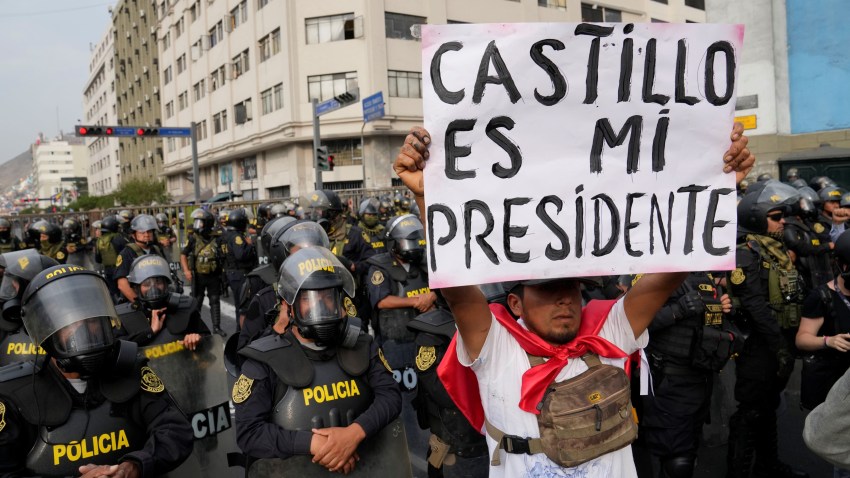There are two interpretations of the events that have sent Peru into yet another spiral of political instability over the past two weeks.
In the first, ousted President Pedro Castillo went beyond his constitutional authority in an attempt to shut down the legislature and govern by decree. Given Peru’s historical experience with then-President Alberto Fujimori’s autogolpe—or self-coup—in 1992, the country largely rejected Castillo’s actions. Peru’s institutions pushed back, with the Congress impeaching him and installing Vice President Dina Boluarte as president, and the police arresting Castillo for rebellion.
The other interpretation is that Castillo’s right-wing political opponents in the legislature forced him into a corner and then overthrew him in a coup. Congress blocked Castillo’s agenda and ability to govern, then used legal trickery to avoid no-confidence votes in his prime minister and Cabinet that would have created the legal conditions for new legislative elections. The vote to impeach Castillo then took place within hours of his announcement of new legislative elections, potentially violating the rules for that procedure. The military and police, in refusing the president’s orders and siding with the legislature, blatantly violated the civilian chain of command. The ongoing protests around Peru demonstrate that the democratically elected Castillo still enjoyed substantial support among the population outside of Lima. And Boluarte’s decision to implement a state of emergency and grant the military more powers to respond to those protests—as well as the excessive force that has left over a dozen protesters dead—shows that the new government is willing to resort to undemocratic methods in order to maintain control.

